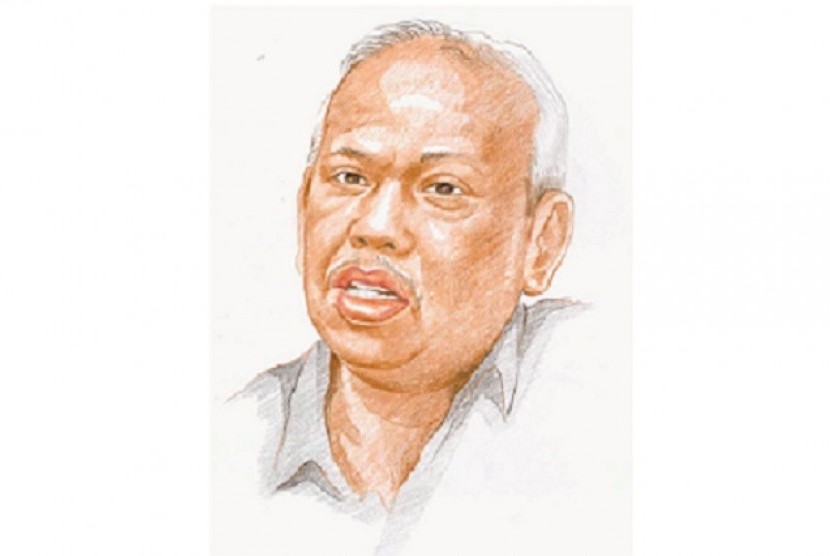By Azyumardi Azra
Escalation of Syria’s civil war was getting worrisome in these past few weeks when President Bashar Assad’s military action started to entangle Turkey. Last week, several Syrian mortars hit Akcakale, a Turkish village in the north border of Syria, which killed five Turkish civilians. In the middle of international calls to refrain, Turkish military made a counterattack in the border area. At the same time, Turkish parliament just approved more massive attacks to Syria whenever necessary.
This alarming development could end up to opening war between Syria and Turkey which is the member of North Atlantic Treaty Organization (NATO). Bashar Assad’s regime military operation spilled over against Syrians fighting force could also reach south – border with Lebanon and Jordan. If this happens, western part of Middle East will be back into a collection of hot coals and difficult to extinguish.
Thus, since volatility resistance against President Bashar Assad escalated on March 2011, Syria crisis resolution seemed to move further away. Moreover, a UN envoy for Syria (crisis resolution), Lakhdar Brahimi, who were appointed to replace Kofi Annan, also showed his helplessness. Victims continued to fall. Various international organizations estimated 31 thousand people – especially civilians – killed since turbulence occurred. Although fighting forces seemed to increase, they also seemed difficult to fight Bashar Assad’s military regime power which made Newsweek magazine (17/09/2012) called them as “David and Goliath in Syria”.
Crisis escalation in Syria and its neighbouring countries, which generally are Muslim countries or Muslim-majority countries, reflected several unfavourable issues. First, Bashar Assad’s regime strength, who did not hesitate to victimize dissidents in order to keep his power, sooner or later will end. Several proposals and peace settlement schemes by UN, Arab League, and international parties could not soften his heart.
Second, war escalations in Syria, at the same time demonstrate the failure of international mediation. International multilateral institutions, such as UN, also failed to end Syrian war. UN nations were fragmented. United States and European countries wanted to impose firm and strict actions towards Bashar Assad’s regime. But there were also Russia and China blocks which against international intervention in Syria.
Third, amid both parties division, Western countries, US and allies, chose not to call out their military forces to Syria. Why did they act differently to Libyan crisis in 2011? It related to financial and economic crisis that continued in many European countries and the season of US presidential election.
President Barack Obama who was concentrating on re-election, tends to act lenient in many of his foreign policy which makes him criticized by many parties in US, including Republican Party presidential candidate, Mitt Romney. This is also a typical attitude of Republican Party which tended to be hawkish, fierce as a hawk; differs to the dovish Democratic Party, the gentle dove.
Fourth, Syrian crisis also reflected political conflict amongst Arabian countries in particular. Saudi Arabian and Qatar reported as the largest funders for President Bashar Assad’s fighting force. Both countries refused Iranian involvement in Syria’s conflict resolution efforts, not just because their dislike factor to President Ahmadinejad, but also Hizbullah’s force (Shia) in Lebanon, Bashar Assad right hand, the Shia Allawiyahism as well as Ba’athis-Sosialist. Religion sectarian also became hidden motive of Saudi Arabia and Qatar Government as well as Syria’s.
In such circumstances, President Mursi’s government, Egypt, was helpless on mediating conflict between Arab Saudi and Qatar in one side and Iran on the other side. This was because Egypt’s leverage towards other Arabian countries, especially Iran, has lessen significantly due to political instability post Mubarak era.
In these unfavourable circumstances, certainly the most advantage was Israel. Syrian crisis and conflicts amongst Arabian countries has made PM Netanyahu’s regime walked more freely on confronting Palestine, thus made reconciliation on Palestine land to be further away. At the same time, Israel escalated pressure to Iran which being claimed to continue enrichment of uranium for nuclear weapon production. This made tomorrows in Middle East will be quite tough.
Translating: Indira Amaranti


